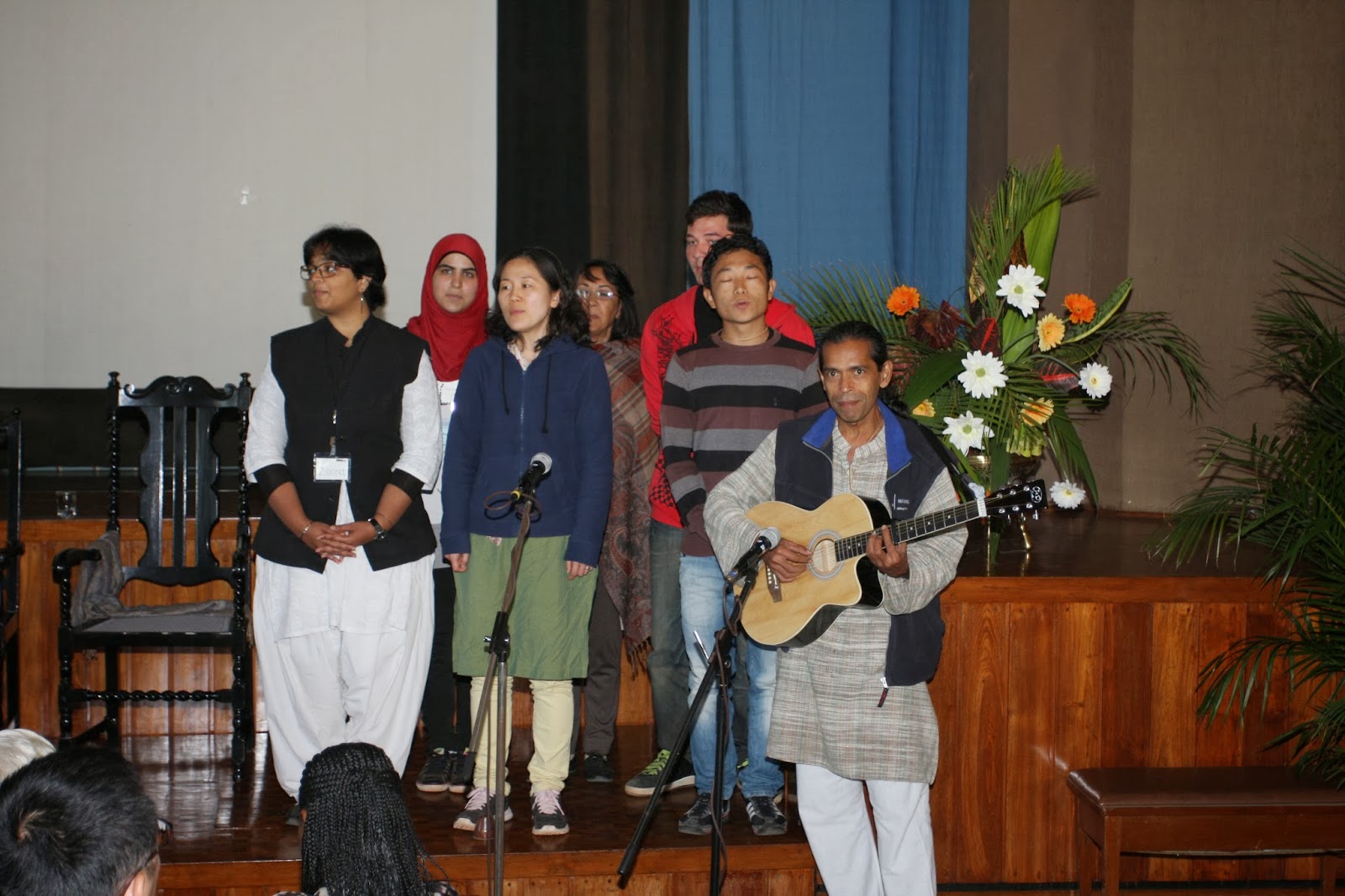Reflections on ‘Making Democracy Real’ at Panchgani
21 January 2014
Shabnam and I were sorry to leave a day earlier than the conference finished, but work in Pakistan called. We travelled back to Amritsar where we remained for two days. But there was simply no time to go to Jalandhar and Ludhiana to see all our friends. It would have been more travelling and less spending time with people who have given us a great deal of love and affection.
Speaking for myself, I came away with a singular notion from Panchgani: the sane minority, and make no mistake, sanity is in minority, is linked together in a very strong, unshakeable bond. Right now, it might seem that we are not in a position to bring about any significant change in the way the world is run or making democracy real. But the four days at Panchgani tell me that there is just that little chance that this effort will eventually work out after all.
Speaking for myself, I came away with a singular notion from Panchgani: the sane minority, and make no mistake, sanity is in minority, is linked together in a very strong, unshakeable bond. Right now, it might seem that we are not in a position to bring about any significant change in the way the world is run or making democracy real. But the four days at Panchgani tell me that there is just that little chance that this effort will eventually work out after all.
Panchgani was my second involvement with Initiatives of Change (the first being in Caux, Switzerland last July) and I was, once again, completely overcome with the fellow-feeling among the participants – some who were meeting for the first time in their lives. I am acutely aware that these good people do not stand alone; there is a community of goodness in this world. I feel I am very fortunate to be a part of it.
 |
| The Conference Centre |
This dialogue showed how essential is the peace within. Only when this peace of the soul takes over can we realise that all humans are essentially the same; that evil is an aberration whereas an inherent goodness is the basic element of the human soul. I also realise that healing begins with sharing experience. This healing is two-way: it mends both the perpetrator and the wronged party.
At Panchgani – and earlier at Caux, I learned also that we are afraid and untrusting of the other simply because we do not know them. To know the other, the perceived enemy, sheds the curtain and lets the light in. And once again we know that we are, after all, brothers.
 |
| A song before the proceedings open |
Again, the very clear and present threat of militancy is another challenge. The state of Pakistan has folded to this menace; it has relinquished its writ and the terrorists have taken over. With folded hands and bended knees the state begs the terrorists time and again for remission in their onslaught bringing death and destruction to the country. And every plea of the state is answered with yet more bloodshed.
 |
| An outdoor session called 'Chowk' |
A sense of guilt for one’s transgression has to come from within. In nearly twenty years of unspeakable inhumanity, the terrorists show no sign of remorse. I fail to understand how ordinary people like me can reverse this situation.
 |
| Singing they go |
The dialogue at Panchgani was of help at a very personal level: sharing my experience of Jalandhar in 2008 where part of my family perished in the riots of Partition, and the realisation that other participants felt the grief I had inherited from my paternal side, brought immense inner peace to me. From other participants, especially those from Africa, I learned that similar experiences of sharing their stories and meeting ‘the other’ healed.
Labels: India, Pakistan, Partition
posted by Salman Rashid @ 00:00,
![]()
0 Comments:





Post a Comment